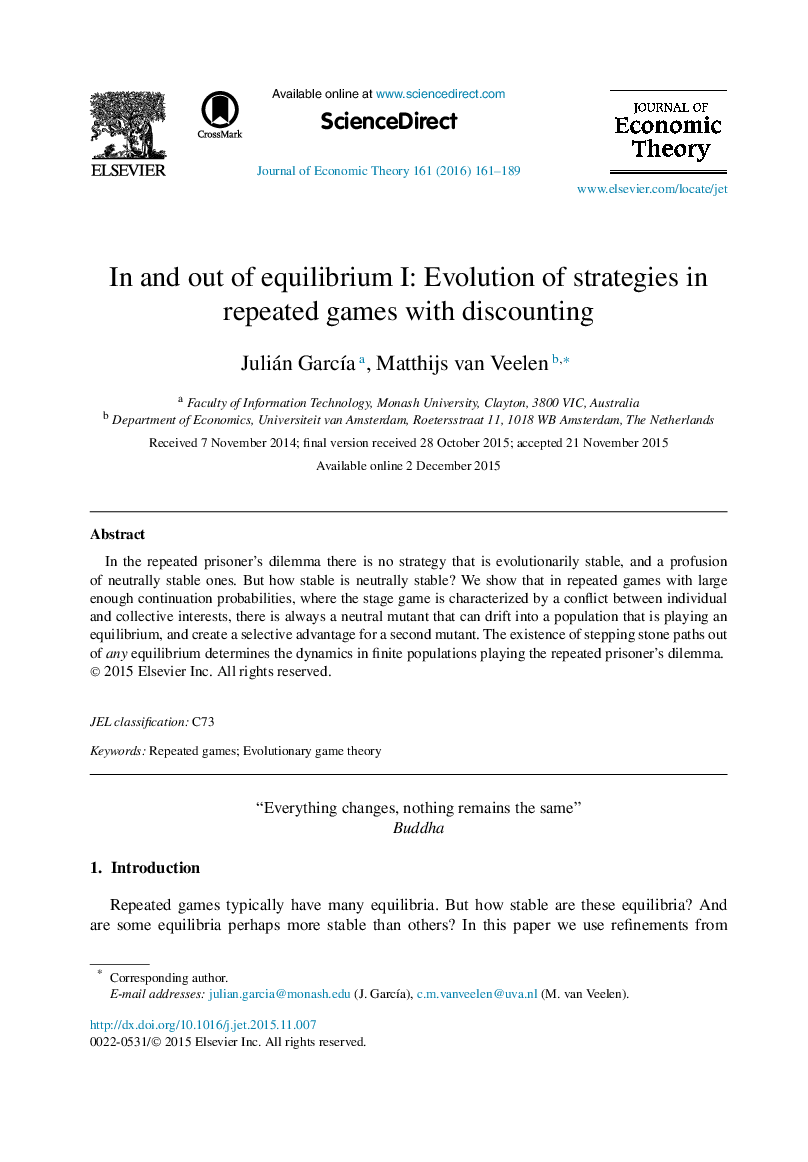| Article ID | Journal | Published Year | Pages | File Type |
|---|---|---|---|---|
| 956705 | Journal of Economic Theory | 2016 | 29 Pages |
Abstract
In the repeated prisoner's dilemma there is no strategy that is evolutionarily stable, and a profusion of neutrally stable ones. But how stable is neutrally stable? We show that in repeated games with large enough continuation probabilities, where the stage game is characterized by a conflict between individual and collective interests, there is always a neutral mutant that can drift into a population that is playing an equilibrium, and create a selective advantage for a second mutant. The existence of stepping stone paths out of any equilibrium determines the dynamics in finite populations playing the repeated prisoner's dilemma.
Related Topics
Social Sciences and Humanities
Economics, Econometrics and Finance
Economics and Econometrics
Authors
Julián García, Matthijs van Veelen,
